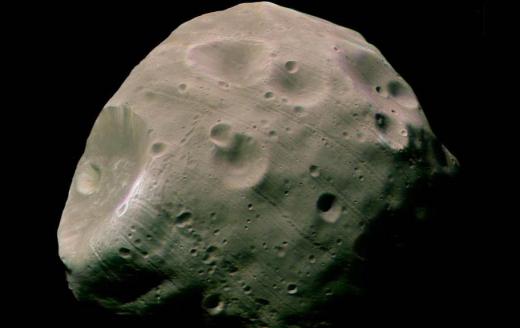Panspermia is taken from Greek and means "seeds everywhere." It is the name for a somewhat controversial theory that life, or the organic molecules that are the building blocks for primitive life forms, are found throughout the universe and that these molecules can travel interplanetary or even interstellar distances, carried by interstellar dust clouds, rogue asteroids, or comets. The theory further maintains that this is the original source of life on Earth and might also be the source of yet to be discovered life forms on other planets.
While the idea of panspermia, albeit in a slightly different form, is first seen in the writings of an ancient Greek philosopher, the first, more modern, version of the theory was introduced in the 18th century by a Frenchman, Benoit de Maillet. He proposed that life on Earth originated from microbes from space that had landed in and colonized the ancient oceans. In the time since, the theory has had many proponents, among them such well known figures of science as Lord Kelvin. As man's knowledge has advanced, panspermia as a theory has evolved somewhat, but the basic concept has remained.

At least three derivative theories of panspermia exist. Lithopanspermia and ballistic panspermia, for example, contend that when an asteroid or meteor strikes a planetary body on which microbial life exists, that it is possible for the debris from that planet to be ejected into space. The debris would presumably carry microbes across interplanetary, in the case of ballistic panspermia, or even interstellar distances, in the case of lithopanspermia, where it could later land on another body, seeding it with the molecules that are the basis for life.

Science continues to provide evidence that the ideas presented by these theories are possible. It is well documented that meteorites and other debris are exchanged regularly by planets and other interplanetary bodies. A meteorite, positively identified as being from Mars, was recovered in Antarctica in the 1980s and is believed by some scientists to contain fossilized bacteria, lending support to this theory, although these findings and the theory itself are still widely contested by many. It has also been proven on multiple occasions that certain bacteria can remain dormant for millions of years and then revived. Likewise, some microbes and bacteria have been shown capable of surviving conditions similar to those found in deep space.
Conclusive evidence either supporting or disproving the theories of panspermia and related theories have not been universally accepted by science. Some of the world's most respected and accomplished scientists champion it as a possible explanation for the origins of life on Earth and for a possible mechanism for the spread of life throughout the universe. Many equally respected and qualified scientists and experts insist that no hard evidence for panspermia exists however and that while it may be possible, it has not and cannot been demonstrated to be correct. Further scientific advancements and discoveries may support or eliminate the theory at some point in the future, but as of 2011, the debate continues.
